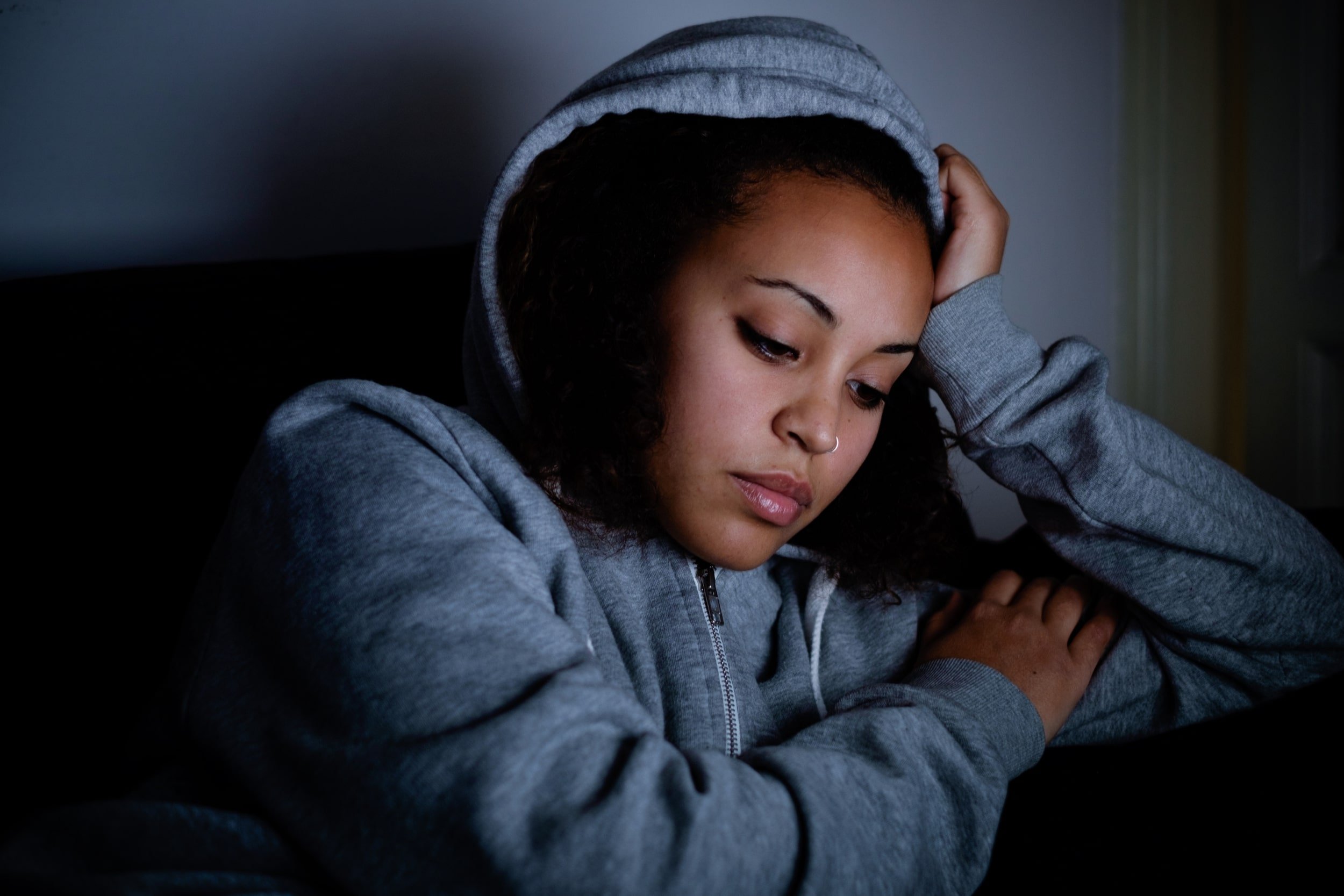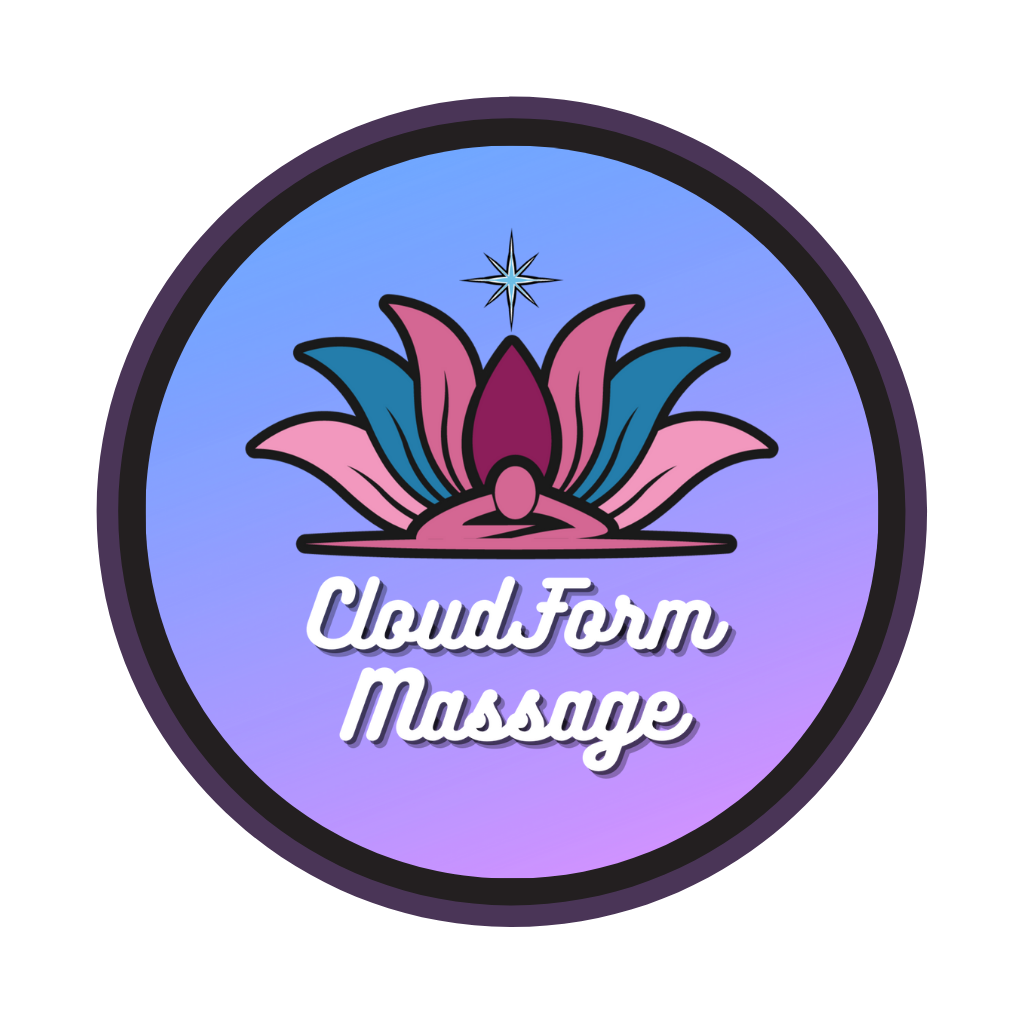
rEDUCE anxiety WITH MASSAGE
take care of your body & relax your nervous system.
What is Anxiety?
Anxiety is a common mental health condition characterized by feelings of worry, unease, or nervousness about future events or situations. While occasional anxiety is a normal part of life, chronic anxiety can interfere with daily activities and overall well-being. Anxiety disorders can manifest in various forms, including generalized anxiety disorder, panic disorder, and social anxiety disorder.
Anxiety can affect people in different ways, some people are able to handle a low or minor level of anxiety very well in their daily life however it can be immensely crippling for others all the time or just in certain situations. The severity of anxiety will vary from individual to individual but it’s important to note that it can be treated. Massage Therapy is offered as an alternative way to treat anxiety if it is a result of your body being stuck in ‘Alert Mode’
Why do people get anxious or develop anxiety?
Anxiety is a normal and natural response to stress, fear, or perceived threats. People may develop anxiety for various reasons, such as genetics, brain chemistry, personality traits, and life experiences. Chronic stress, traumatic events, or significant life changes can also contribute to the development of anxiety disorders. In some cases, anxiety may be a symptom of an underlying medical condition or a side effect of certain medications. Additionally, factors like environmental stressors, societal expectations, and personal relationships can play a role in the development and persistence of anxiety in an individual's life.
Another aspect that contributes to the development of anxiety is the way people process and cope with stress. Some individuals may have a heightened sensitivity to stress, making them more prone to anxiety. Furthermore, unhealthy coping mechanisms, such as substance abuse or avoidance behaviors, can exacerbate anxiety symptoms and lead to the development of anxiety disorders. Early intervention, building resilience, and learning healthy coping strategies can help prevent or manage anxiety in many cases.
What Do anxiety symptoms feel like?
Anxiety symptoms can vary from person to person and may manifest as physical, emotional, or behavioural signs. Common physical symptoms include a rapid heartbeat, shortness of breath, chest pain, sweating, trembling, and gastrointestinal issues. These physical manifestations of anxiety can be distressing and may even be mistaken for symptoms of other medical conditions, such as a heart attack, leading to increased anxiety.
Emotionally, anxiety can cause feelings of constant worry, fear, restlessness, irritability, and difficulty concentrating. People with anxiety may also experience a sense of impending doom, excessive concern about their health or the well-being of loved ones, and a tendency to overthink or ruminate on negative thoughts. These emotional symptoms can be draining and may impact a person's ability to function in daily life, affecting work, relationships, and overall quality of life.
Behaviourally, anxiety can lead to avoidance of situations or activities that trigger anxious feelings, changes in sleep patterns, and difficulty relaxing. People with anxiety may also engage in repetitive behaviours or rituals to help alleviate their anxiety, such as constant checking, excessive cleaning, or seeking reassurance from others. Over time, these behaviours can become counterproductive and contribute to the maintenance and worsening of anxiety symptoms.
How Massage Therapy softens anxiety
Massage therapy has been shown to help alleviate anxiety by targeting both physical and psychological aspects of the condition. Physically, massage helps to reduce muscle tension and promote relaxation throughout the body. By decreasing tension and increasing circulation, massage can help to alleviate some of the physical symptoms associated with anxiety, such as muscle stiffness, aches, and pains.
On a psychological level, massage therapy can help to reduce cortisol levels, the hormone associated with stress, and increase the release of endorphins, which are the body's natural pain relievers and mood elevators. This shift in the hormonal balance can result in a reduction of anxiety symptoms in general.
Furthermore, massage therapy offers a safe and nurturing environment for individuals with anxiety. The experience of touch in a therapeutic setting can foster feelings of comfort, safety, and trust, allowing the person to relax and release emotional tension. This supportive atmosphere can help to break the cycle of anxious thoughts and provide a sense of relief and calmness.
What are some of the benefits of massage for anxiety?
Reduced stress and cortisol levels: Massage therapy promotes relaxation and stress reduction, contributing to lower cortisol levels and overall improvement in anxiety symptoms.
Improved sleep quality: By promoting relaxation and addressing muscle tension, massage can contribute to more restful and restorative sleep, which is essential for mental and emotional health.
Increased body awareness: Massage can help to heighten body awareness, enabling individuals to recognize physical manifestations of anxiety and implement coping strategies more effectively.
Enhanced self-compassion and self-worth: Engaging in regular self-care activities like massage therapy fosters a greater sense of self-compassion and self-worth, counteracting negative thought patterns.
Routine and predictability: Regular massage therapy sessions can provide a sense of control and stability for individuals with anxiety, helping to establish a predictable self-care routine.
Overall mental and emotional well-being: Consistent practice of massage therapy supports mental and emotional well-being and contributes to a more balanced and resilient response to life's stressors.
mASSAGE TECHNIQUES & STYLES FOR ANXIETY
At CloudForm Massage, our experienced therapists utilize a variety of massage techniques to address anxiety and promote relaxation. Some of the techniques we offer include:
Swedish or Relaxation massage: This gentle form of massage utilizes long, gliding strokes and kneading to promote relaxation and reduce muscle tension.
Aromatherapy massage: By incorporating essential oils with calming properties, such as lavender or chamomile, aromatherapy massage can help enhance relaxation and reduce anxiety.
Deep tissue massage: This technique focuses on releasing tension in the deeper layers of muscle and connective tissue, promoting relaxation and reducing anxiety.
Reflexology: By applying pressure to specific points on the feet, reflexology can help promote relaxation and balance in the body, which can contribute to anxiety relief.
Sensory Deprivation Massage: Our Signature sensory deprivation massage is design to help you relax by shutting off your senses while decompressing your nervous system & get you feeling better than ever.
Why Choose Us to help you?
Read some of our amazing reviews by hundreds of beloved clients
Experienced, Professional, Therapeutic.
Invest in your mental health by making massage therapy at CloudForm Massage a regular part of your selfcare routine. Regular massage sessions can help prevent anxiety and promote relaxation, improved mood, and overall wellbeing. Experience the difference that massage therapy can make for your anxiety.
Take the first step towards anxiety relief by scheduling an appointment at CloudForm Massage. Our massage therapists will help you on your journey towards improved mental health living a full life. Contact us today to book your session and begin experiencing the transformative power of massage therapy for anxiety relief, management & improvement.

Say Goodbye to Anxiety, Soothe your body.
FAQ About Anxiety
Q: How often should I get a massage for anxiety relief? A: The ideal frequency of massage sessions for anxiety relief can vary depending on the individual's needs and preferences. Generally, a massage every 2-4 weeks is recommended to maintain the benefits of reduced stress and anxiety levels. Your massage therapist at CloudForm Massage will work with you to develop a customized treatment plan that suits your specific needs.
Q: What type of massage is best for anxiety? A: While individual preferences may vary, Swedish massage is often recommended for those dealing with anxiety due to its gentle, relaxing nature. Your therapist at CloudForm Massage can also tailor your massage to incorporate elements of other techniques, such as deep tissue or trigger point therapy, depending on your needs and preferences.
Q: How long does it take to see the benefits of massage therapy for anxiety? A: Many people experience immediate relaxation and stress relief after just one massage session. However, long-term benefits for managing anxiety symptoms typically emerge with regular, consistent massage therapy sessions over an extended period of time.
Q: Are there any contraindications for receiving massage therapy if I have anxiety? A: Massage therapy is generally considered safe for individuals with anxiety. However, it's important to consult with your healthcare provider and inform your massage therapist of any medical conditions or medications you're taking to ensure a safe and effective treatment plan.
Q: Can massage therapy replace medication or other treatments for anxiety? A: While massage therapy can provide significant benefits for anxiety management, it should not be considered a replacement for medication or other treatments prescribed by your healthcare provider. Massage can be an effective complementary therapy to traditional anxiety treatments, such as medication or psychotherapy.
Q: Will my massage therapist at CloudForm Massage be able to provide guidance on managing my anxiety? A: Our massage therapists are trained professionals with experience in addressing anxiety-related issues through massage therapy. While they can offer valuable advice and support, it's important to remember that they are not mental health professionals. For more comprehensive guidance on managing anxiety, consult with a licensed mental health professional.
Q: Is it normal to feel emotional during or after a massage for anxiety? A: It's not uncommon for individuals to experience a range of emotions during or after a massage, particularly if it's addressing anxiety or stress-related issues. Massage can help release stored tension and emotions, and it's important to communicate with your therapist if you feel overwhelmed or uncomfortable during your session.
Q: What can I do to maximize the benefits of massage therapy for anxiety between sessions? A: Practicing self-care techniques such as regular exercise, mindfulness meditation, deep breathing exercises, and maintaining a healthy sleep routine can help to support the benefits of massage therapy for anxiety between sessions. Additionally, adopting a consistent massage schedule and following the advice of your massage therapist at CloudForm Massage can contribute to long-term anxiety relief.
What Else Can Help with Anxiety?
In addition to massage therapy at CloudForm Massage, several complementary approaches can help manage anxiety and promote overall mental health:
Meditation and mindfulness practices: Regular meditation and mindfulness exercises can help improve emotional regulation and reduce anxiety.
Regular exercise: Engaging in physical activity can release endorphins and promote relaxation, helping to alleviate anxiety symptoms.
Balanced diet: Consuming a nutritious diet can support brain function and contribute to overall mental health.
Adequate sleep: Ensuring proper sleep hygiene can help regulate mood and reduce anxiety symptoms.
Taking proactive steps to prevent anxiety is essential for maintaining overall mental health and well-being. Some effective prevention strategies include:
Practicing stress management techniques, such as deep breathing exercises and progressive muscle relaxation
Scheduling regular massage therapy sessions at CloudForm Massage to address muscle tension and promote relaxation
Engaging in regular physical activity and maintaining a healthy lifestyle
Establishing a strong support network of friends and family to discuss feelings and concerns
Seeking professional help, such as therapy or counseling, to address underlying causes of anxiety
Prioritizing self-care and incorporating relaxation techniques, such as meditation and mindfulness, into daily routines
It’s Important to understand that Anxiety can only be diagnosed by a professional such as a psychologist, psychiatrist or General Practitioner. However, massage in general does not require for your anxiety to be diagnosed in any formal way for you to receive massage therapy to alleviate some of the symptoms you might experience.
We aim to improve your symptoms & provide you with a sanctuary to reduce stress & decompress your nervous system so that you can live the life you want.
Book With CloudForm Massage Today & Experience Our Difference.
We Look Forward to Seeing You!

